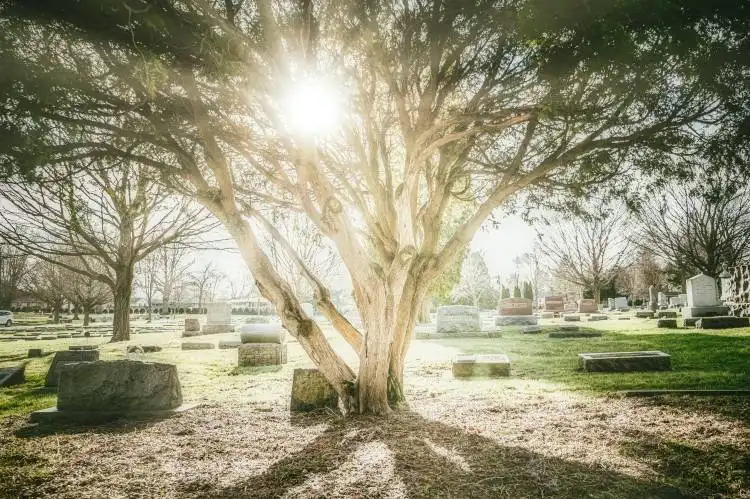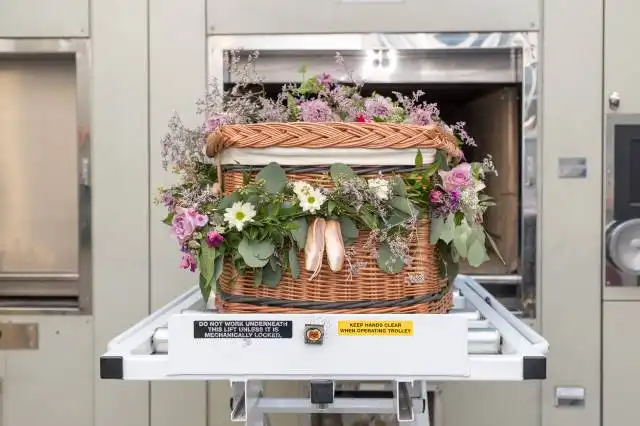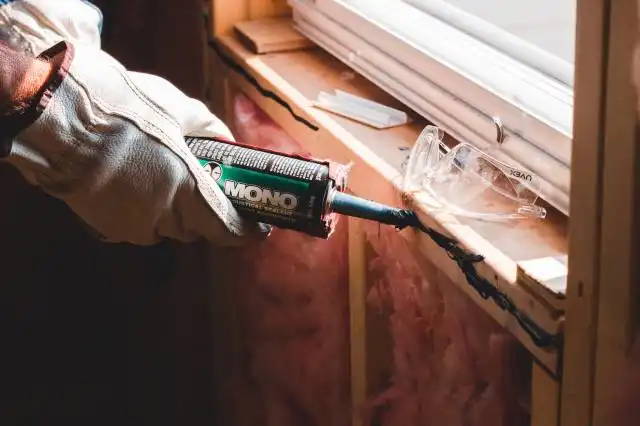Start a Funeral Home
Embrace Your Compassionate Side: Venturing into the Funeral Home Business
| Updated


FUNERAL HOME
Imagine swapping your nine-to-five grind for a final rest? That's exactly what a funeral home business involves. It's not every entrepreneur's cup of tea, but for the intrepid, it is a noble venture that marries business acumen with compassionate service. Essentially, a funeral home assists grieving families by coordinating burials, cremations and memorial services, alongside providing practical help with paperwork and logistics during a challenging time. So, if you're an empathetic soul with one foot in entrepreneurship, jumping into the funeral home business might be your calling.
Jump to Business Plan
RELATED BUSINESS IDEAS
Browse ALL Hospitality & Leisure Ventures Business Ideas
Discover Your Perfect Domain
Unlock the door to your online success with our hand-picked selection of premium domain names. Whether you're starting a new venture or rebranding an existing one, the right domain can set the tone for your digital presence. Browse through our curated list, each with its unique potential to enhance your brand's visibility and credibility.
FUNERAL HOME MINI BUSINESS PLAN
This a quick reality check to help you identify the strengths and weaknesses of your business concept before you dive in.
Expected Percent Margin:
- Gross Margin: 62 - 70%
- Net Profit Margin: 15 - 20%
Earnings Expectations:
- Daily Earnings: $400 - $1000
- Weekly Earnings: $2800 - $7000
- Monthly Earnings: $12,000 - $30,000
- Annual Earnings: $144,000 - $360,000
Actions to Hit Those Numbers:
Licensing & Training:
- Funeral Director License: Obtain/maintain licensure as required by your state.
- Continued Education: Investment in necessary training/events.
Personnel Management:
- Staff: Hire and train detail-oriented and compassionate full-time staff.
- Employee Wages: Wages will take a significant portion of your margins, plan accordingly.
Inventory & Services Management:
- Contract with suppliers: Work out deals for caskets, urns, flowers etc.
- Ancillary Services: Offer related services, such as grief counselling and memorial site cleaning, to increase revenue.
Marketing & Public Relations:
- Community Presence: Regularly engage in local events and charity work to build reputation.
- Advertising: Consistent ad presence in local media.
Facility Management & Upkeep:
- Location: Opt for a prime yet affordable location.
- Maintenance: Regular maintenance schedule to keep facility inviting and in good shape.
Regulatory Compliance:
- Legal: Stay updated on local, state, and federal laws to avoid fines.
- Insurance: Maintain good insurance coverage to offset any unexpected costs.
Again, these are estimated figures and actions, actual results may vary based on location, economy, and zeal applied to the business management, among other factors.
NOT WHAT YOU HAD IN MIND? Here are more ideas



Browse ALL Hospitality & Leisure Ventures Business Ideas
Grab Your Business Website Name
Before you get caught up in the whirlwind of setting up your business, invest in a domain name. It's a small but significant step that lays the foundation for your brand and makes it easier for customers to find and trust you. Just like you wouldn't build a house without securing the land first, don't build a business without securing your domain name.
"Why? Can't that wait?" Here's why it shouldn't
Step 1: Determine if the Business is Right Endeavor
Breakdown of Startup Expenses
Before starting a funeral home business, it is important to understand the startup costs associated with the venture. These costs may include the cost of purchasing or leasing a building, the cost of necessary equipment and supplies, the cost of hiring staff, and the cost of obtaining a business license. It is also important to consider the cost of marketing the business, as well as the cost of any necessary insurance. Additionally, it is important to consider the cost of any necessary training or education for staff members.
Breakdown of Ongoing Expenses
After the startup costs have been considered, it is important to understand the ongoing expenses associated with running a funeral home business. These expenses may include the cost of paying staff, the cost of purchasing supplies and equipment, the cost of maintaining the building, and the cost of marketing the business. Additionally, it is important to consider the cost of any necessary insurance and the cost of any necessary training or education for staff members.
Examples on Ways to Make Money
There are a variety of ways to make money with a funeral home business. These may include offering services such as pre-planning funerals, providing burial and cremation services, and offering memorial services. Additionally, the business may offer merchandise such as caskets, urns, and other funeral-related items. It is also possible to make money by offering additional services such as grief counseling and funeral planning services. Finally, the business may offer additional services such as catering and transportation services.
Step 2: Name the Business
- Brainstorm ideas for the business name. Consider words that reflect the services you will be providing and the emotions you want to evoke.
- Research the name to make sure it is not already in use. Check with the USPTO, local government offices, and other businesses in the area.
- Consider registering the business name as a trademark to protect it from being used by other businesses.
- Choose a name that is easy to remember and spell.
Brainstorming ideas for the business name is an important step in the process of starting a funeral home. Consider words that reflect the services you will be providing, such as death, mourning, and grief, as well as the emotions you want to evoke, such as peace, comfort, and solace. Research the name to make sure it is not already in use. Check with the USPTO, local government offices, and other businesses in the area to ensure that the name is not already taken. Consider registering the business name as a trademark to protect it from being used by other businesses. When choosing a name, make sure it is easy to remember and spell. This will make it easier for customers to find your business and remember it. Additionally, make sure the name is not too long or complicated, as this can make it difficult to remember and spell.
Step 3: Obtain Necessary Licenses and Permits
In order to legally operate a funeral home, you will need to obtain the necessary licenses and permits from the local, state, and federal government. Depending on the state and local regulations, you may need to obtain a license from the state board of funeral directors and embalmers, a business license, a sales tax license, and a permit from the local health department. You may also need to obtain a permit from the local fire department, and a permit from the local zoning board. Additionally, you may need to obtain a license from the federal government if you plan to transport bodies across state lines.
Cost of Licenses and Permits
The cost of licenses and permits will vary depending on the state and local regulations. Generally, the cost of the license from the state board of funeral directors and embalmers will be the most expensive. This license can range from a few hundred dollars to a few thousand dollars. The cost of the business license, sales tax license, and permits from the local health department, fire department, and zoning board will range from a few hundred dollars to a few thousand dollars. The cost of the federal license for transporting bodies across state lines will also vary depending on the state and local regulations.
How to Obtain Licenses and Permits
In order to obtain the necessary licenses and permits, you will need to contact the local, state, and federal government offices. You will need to provide the necessary documentation, such as proof of insurance and proof of identity, in order to obtain the licenses and permits. Additionally, you may need to pass a background check in order to obtain the licenses and permits. Once you have obtained the necessary licenses and permits, you will be able to legally operate your funeral home.
Benefits of Obtaining Licenses and Permits
Obtaining the necessary licenses and permits is important for a number of reasons. First, it will ensure that you are legally allowed to operate your funeral home. Second, it will ensure that you are in compliance with all local, state, and federal regulations. Third, it will help to protect you from any potential legal issues that may arise. Finally, it will help to ensure that you are providing the highest quality of service to your customers.
Step 4: Secure a Location
- The location should be accessible to customers. It should be easy to find and have adequate parking.
- It should be large enough to accommodate the services you plan to offer. This includes space for a chapel, office, and other necessary areas.
- The location should be in a safe area and have the necessary permits and licenses.
- Consider the cost of renting or buying the space. You may be able to negotiate a better rate if you are willing to sign a long-term lease.
- It is important to consider the local zoning laws and regulations when selecting a location.
How to Secure a Location
- Start by researching the local area for potential locations.
- Contact the local zoning board to ensure that the location meets all necessary requirements.
- Contact local real estate agents to inquire about available spaces.
- Negotiate a lease or purchase agreement with the landlord or seller.
- Once the agreement is finalized, obtain all necessary permits and licenses.
Step 5: Purchase Necessary Equipment
Once you have secured the necessary licenses and permits, you will need to purchase the necessary equipment for your funeral home. This includes items such as caskets, urns, embalming equipment, and other supplies. You will also need to purchase furniture, such as chairs, tables, and couches, for the viewing room. Additionally, you will need to purchase a hearse and other vehicles for transporting the deceased.
Cost of Necessary Equipment
The cost of the necessary equipment will vary depending on the type of equipment you purchase and the quality of the items. Caskets can range from a few hundred dollars to several thousand dollars, depending on the type and quality. Embalming equipment can cost several thousand dollars, and other supplies can range from a few hundred dollars to several thousand dollars. Furniture for the viewing room can range from a few hundred dollars to several thousand dollars, depending on the type and quality. Additionally, a hearse can cost several thousand dollars, and other vehicles for transporting the deceased can cost several thousand dollars.
Financing Options
If you are unable to pay for the necessary equipment upfront, there are financing options available. You can apply for a business loan from a bank or other financial institution. Additionally, you can look into leasing options for the equipment. This can help you spread out the cost of the equipment over a period of time.
Used Equipment
You may also want to consider purchasing used equipment. This can help you save money on the cost of the equipment. However, you should make sure that the used equipment is in good condition and meets the necessary safety standards. Additionally, you should make sure that the used equipment is compatible with the other equipment that you have purchased.
Step 6: Hire Employees
When hiring employees for a funeral home, it is important to look for individuals who are compassionate and have a deep understanding of the funeral industry. It is also important to make sure that the employees have the necessary skills and qualifications to do the job. It is also important to ensure that the employees have the right attitude and demeanor to work in a funeral home. Additionally, it is important to make sure that the employees have the necessary licenses and certifications to work in the funeral industry.
Benefits of Hiring Employees
Hiring employees for a funeral home can be beneficial in many ways. It can help to reduce the workload of the owner and allow them to focus on other aspects of the business. It can also help to ensure that the funeral home is running smoothly and efficiently. Additionally, it can help to create a sense of community within the funeral home and create a sense of trust between the employees and the customers. Finally, it can help to create a positive work environment for the employees and help to ensure that the funeral home is providing the best possible service to its customers.
Step 7: Market the Business
Once the funeral home is up and running, it is important to market the business to the local community. Examples of ways to market the business include:
Creating a website and social media presence. This will allow potential customers to find the business online and learn more about the services offered. It is also important to keep the website and social media accounts updated with current information.
Utilizing local newspapers and radio stations to advertise the business. This will help to spread the word about the funeral home and its services.
Participating in local events and attending community meetings. This will help to build relationships with potential customers and create a positive reputation for the business.
Networking with other funeral homes in the area. This will help to create a referral network and increase the visibility of the business.
Offering discounts and promotions to attract new customers. This will help to generate more business and increase profits.
Step 8: Develop a Business Plan
When developing a business plan for a funeral home, it is important to include a comprehensive overview of the business. This should include the goals and objectives of the business, the target market, the services offered, the competitive landscape, the marketing strategy, and the financial projections. Additionally, the plan should include a detailed description of the business operations, including the management team, the staff, and the facilities.
How to Create a Business Plan
Creating a business plan for a funeral home can be a daunting task. However, there are several resources available to help entrepreneurs create a comprehensive and effective business plan. For example, the Small Business Administration (SBA) offers a free business plan template that can be used to create a plan. Additionally, there are a variety of online resources that provide step-by-step instructions for creating a business plan.
How to Use a Business Plan
Once a business plan has been created, it is important to use it as a roadmap for the business. The plan should be used to guide the day-to-day operations of the business and to ensure that the business is on track to meet its goals and objectives. Additionally, the business plan should be used to secure financing and to attract potential investors.
How to Update a Business Plan
As the business evolves, it is important to update the business plan. This should be done at least once a year to ensure that the plan reflects the current state of the business. Additionally, any changes to the business should be reflected in the plan, such as changes in the management team, the services offered, or the competitive landscape.
Step 9: Open the Business
Obtain necessary permits and licenses In order to open a funeral home, you will need to obtain the necessary permits and licenses from your local government. Depending on the state, these may include a business license, a funeral director license, and a permit to operate a crematorium. Additionally, you may need to obtain a certificate of occupancy and a certificate of authority. It is important to research the specific requirements for your area and to apply for the permits and licenses in a timely manner.
Purchase necessary equipment In order to successfully open a funeral home, you will need to purchase the necessary equipment. This includes items such as caskets, urns, embalming tables, and other supplies. You may also need to purchase a hearse and other vehicles for transporting the deceased. Additionally, you may need to purchase office furniture, computers, and other office supplies.
Hire staff You will need to hire staff for your funeral home. This includes funeral directors, embalmers, and other personnel. You may also need to hire administrative staff, such as receptionists and bookkeepers. It is important to research the qualifications and experience of potential employees and to make sure that they are properly trained and certified.
Market the business Once you have obtained the necessary permits and licenses, purchased the necessary equipment, and hired the necessary staff, you will need to market the business. This includes creating a website, advertising in local newspapers and magazines, and attending local events. Additionally, you may want to create promotional materials, such as flyers and brochures, to distribute in the community.
EXPLORE MORE CATEGORIES
Browse ALL Business Idea Categories
TAKE THE NEXT STEPS









